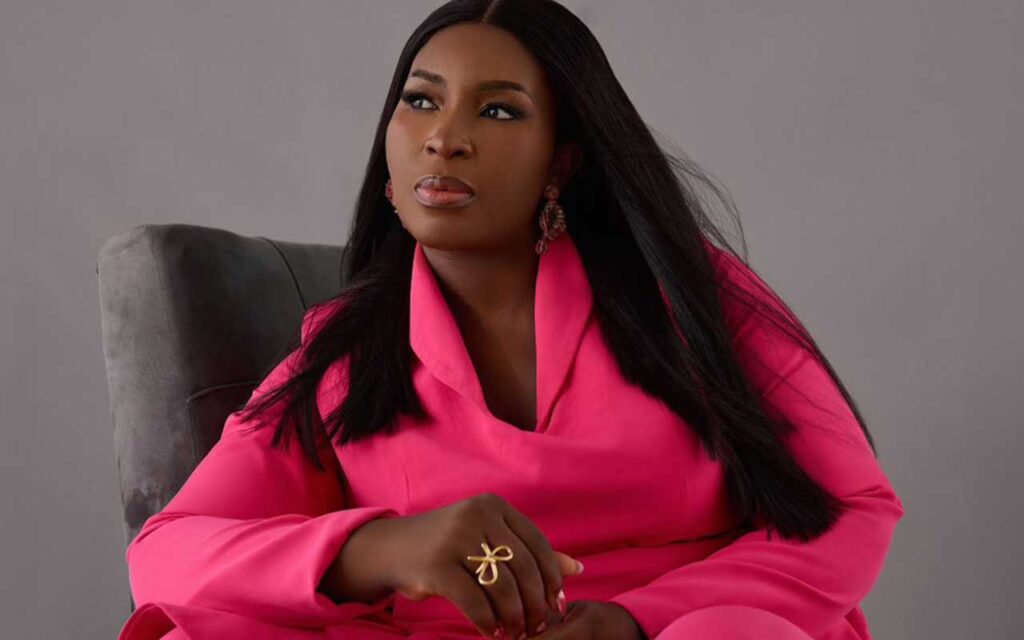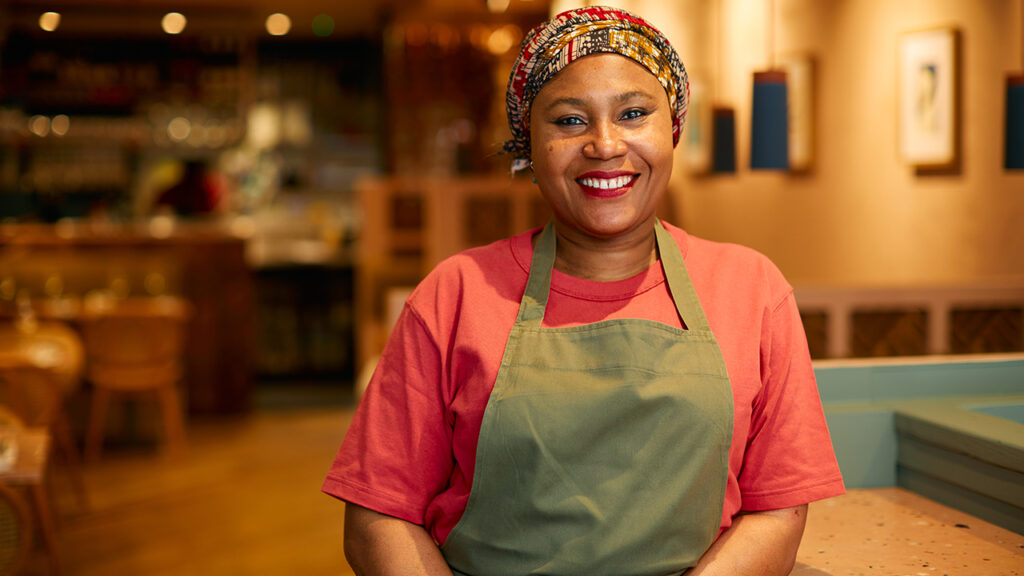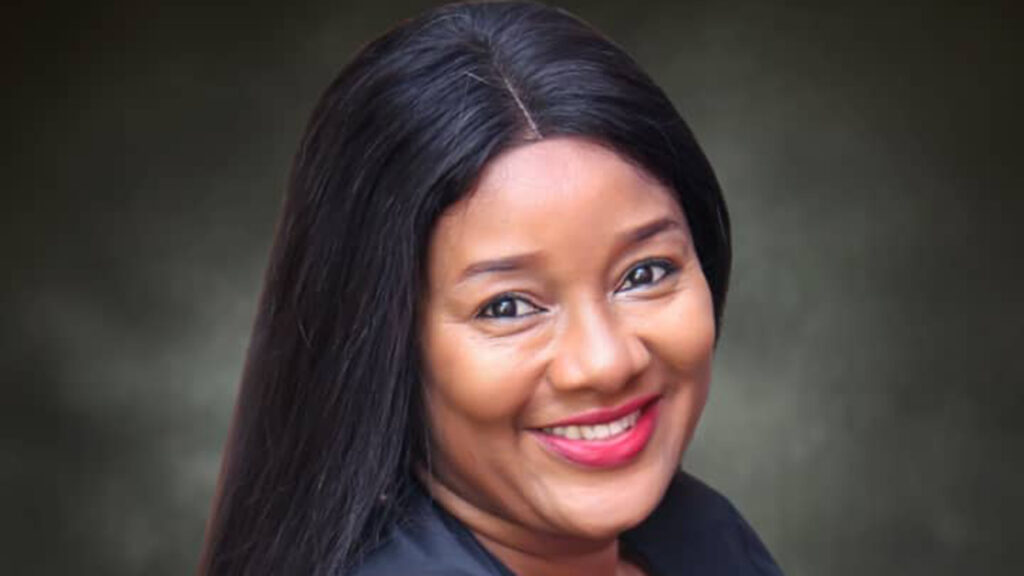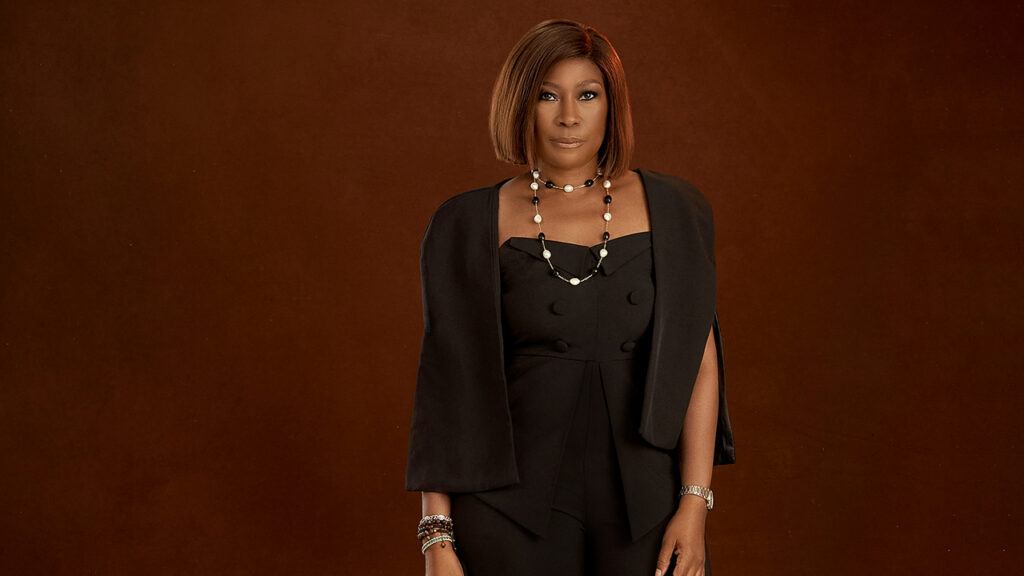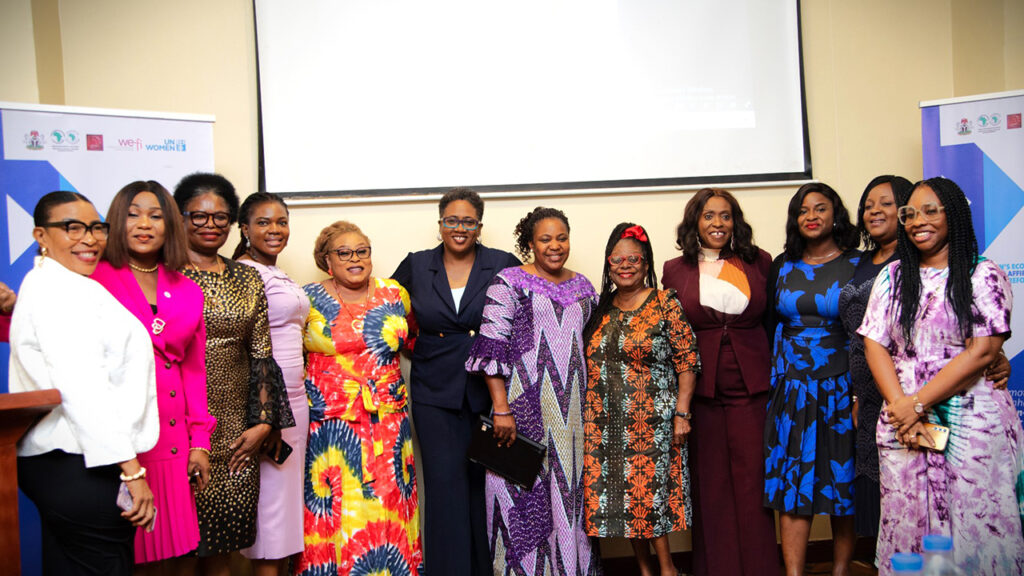
Maryam Adebola-Salami is a business development strategist who has built successful firms across sectors. As founder and chief executive officer of Mobaby Care, she is dedicated to environmental protection, afforestation, good health, gender equality, and economic growth. She has led impactful advocacy programmes focused on mother and child health. She holds a degree in Zoology, a Certificate in Strategic Business Management, and an MBA from the International Finance Corporation (IFC). Through strategic partnerships with primary health centers, non-governmental Organisations, the Sickle Cell Foundation, and private individuals, Adebola-Salami has impacted the lives of over 30, 000 mothers and children and has contributed to the creation of over 500 jobs in the value chain, aligning workforce needs and fostering economic empowerment. Her business has received grants as well as The Cherie Blair Foundation Scholarship for ‘The Road to Growth’ programme at The Enterprise Development Centre, LBS, Lagos; the Orange Corners Incubation Programme, and the Unicorn Accelerator Programme, where she emerged the valedictorian and best graduating student. She also emerged winner of the Access Bank Women-preneur Pit-cha-ton competition. In this interview with IJEOMA THOMAS-ODIA, she reaffirms her unwavering commitment to making a substantial impact in job provision and alignment, transforming lives, and driving economic growth.
Share with us your background and how it influenced your career path.
I am the first child in a family of five. My parents were first children, so it meant that they had a lot of responsibilities on them and it also meant that traditionally, we had a lot of people living in our three-bedroom apartment. I will say that constantly being compared to cousins A, B or C, kept me on the edge and required me to be successful.
I come from a family where they used to believe that a female child is a tool for the kitchen. Unfortunately, my mum had three daughters and it was a constant struggle watching how she tried, despite all odds – fibroid, infertility – to conceive a male child. Unfortunately, the marriage still fell apart and it meant that I went through one-year struggle of thinking if it was the end, continued with school and became the person I wanted to be.
I had always wanted to be a medical doctor, caring for people, having grown up as a sickly child, with one thing to deal with. So I knew I wanted to be at the other end of the spectrum, giving care to people. With my parents getting separated just at the time I was getting into the university, I watched how my mum took the bull by the horns to ensure that her three daughters went to school.
I could tell that it wasn’t easy because she was always tired, and frustrated. It took the joy of mother-daughter relationship and it just became a struggle to always have to ask for help. Luckily, I also learnt the part of hustling; growing up with my mum, the kind of energy she had has always been an inspiration for me.
I also learnt that one of the things that gave my mother an edge, though she wasn’t educated and didn’t have the right skills, was because she was self-sufficient and financially liberated. I wanted to be that kind of woman who made her own money, her own decisions and could move when it is time. So, I started out as a young girl who schooled in Ilorin. I would shop clothing for other students from Lagos, and when I can no longer find it in the market, I go ahead and make the clothes for them at ‘Tinubu downtown’ market in Yaba where I had tailors.
After dropping out of medical school for health reasons, as I also didn’t want my mum to carry all the burden alone, I started my business at 300 level and had my first collection at the Unilorin Pageant. I made all the dresses at the time, about 40 pieces. I knew nothing would stop me; I proceeded to get knowledge in fashion designing while schooling and did that for nine years before finding myself in cosmetology. This stemmed from the time I had my son, who had skin issues and with my background in sciences, I knew it was worth venturing into. So, I went back to school to study baby skin science and the rest is history.
As a versatile professional who has worked in different spheres, how has your experiences shaped you and your work?
I think that working in a corporate setting, having my own business setting when I didn’t know what it was about, having a mum who had businesses, and having seen how she navigated traditional market system, merging all of these experiences together, have made me a better professional. So, I understand what the ministry market means.
I also understand what the corporate market means and I think that my personal life experience in terms of how I was treated growing up and how I was marginalised as a woman or as a female child, help me to see how my organisational structure can be well put together in respecting women and ensuring gender equality as well as eliminating workplace toxicity. It is interesting that sometimes as you go through life, you really cannot tell the importance of the experiences that you are going through till they begin to manifest later. In life, you will realise that you went through those times for a reason and it all worked in your favour. Like they always say, GOD always sees the end from the beginning.
What do you consider a major concern in baby skincare and how is the Mobaby taking care of it?
I think our climate is one of the biggest challenges, and that is why we all need advocacy for environmental consciousness for everything around us. It is important that we recognise the effect of every single thing that we do, from how much water you waste, how much fuel you expel to how many cars are on the road.
These things don’t just disappear, they settle on the ecosystem and a lot of us breathe them in. It is where we have a lot of cancer, kidney failures and even skin degeneration in children. The other part of our concern
for children is the aggregation of pediatric professionals to parents and caregivers. In the rural areas, there are so many of them who do not have easy access to healthcare. Even in the urban areas with easy access to health centres, primary health centers, general hospitals, private hospitals, private clinics, first aid clinics and mobile clinics, like the one we launched at Mobaby care, you will find out that majority of the services available there are general in nature, you do not have a specialisation that could help people, especially these children, to access good healthcare. So, what we do at Mobaby is to use technology as a tool to provide solutions around the healthcare system. Very soon we will be launching our app that makes this aggregation easier and seamless.
How easy was it for you to navigate and thrive in your field as a woman, especially at the time you started out?
Having a baby care brand is easier on women because there’s just this natural instinct that women care for children, which I do 100 per cent believe. I feel like it is one of the stereotypes that still wiggle around women and men, causing more gender inequality or instability. Running the business, being the founder and being the business development strategist at Mobaby care, I wouldn’t say it has been difficult.
I would say that it is the other part of running business that has been difficult. For example, renting a space for your factory, doing some factory work, or you want to procure machines, equipment, simple things that you need to have your business running and you find a landlord saying ‘can I speak to the man of the house’ and you are wondering.
You will literally need a male figure to always run some negotiations for you at some point, either as a vendor or a workman who is trying to cheat you because you are a female. It is a constant thing and it is not just in the informal sector, even in the formal sector. You will find out that going to banks for loans, and they are downsizing your needs, capacity or stocks because you are a female.
This gender bias is a continuous struggle at different sectors and different parts of your business, but I think that because of my background, my experience, I am so strong and confident enough to continuously fight for this. I see myself as a figure for other women to thrive.
How can we get more women to become successful and rise to the top as you have done? What tips do you have for younger women?
I don’t think that getting more women to become successful and rise to the top as I have done is the major concern, it is how to maintain women at the top. So, a lot of programmes right now are channelled into female-led organisations, and founders. There’s been a lot of fight for women, and just as I am constantly advocating, what are the policies being put in place to ensure that women continue to thrive?
For example, I have fought my way to get to the top and I am still rising if I may say so. But then, there are still issues that need to be dealt with to help me navigate through the ladder of success. Do men have the understanding and knowledge that a woman being at the top is not a problem? I am lucky to have a husband who supports me 100 per cent, who would switch from full time working to be a stay-at-home dad for the period I need to achieve some things in my life. I will say that women should stay focused because a lot of times, they are full of excuses.
I have a network of women called the ‘Made Woman Network’ where we democratise opportunities and financial literacy for women. You will find out that you give assignment and excuses start to roll in, it depresses whoever is supposed to help you. I will say make use of your network. A lot of things that I have achieved today have been a result of the network I am in or I have, either through friendship, business network or personal family network. Create opportunities for others and encourage them. It’s not always about you, because that is what I have done in the past.
What tips do you have for women-owned initiatives that are struggling to stay afloat?
Dear woman, just like we go for it when it’s time to do other things in our lives like bearing children, saying yes to a man, starting a business requires the same dedication for you to stay afloat. You have to go for it. I know that I started business, saying I will never take a bank loan or I will never take a corporate loan in my life. What do I need it for? I don’t want to end up like my mum.
I don’t want to have financial issues. But getting more financial education and training, I realised that loans are not bad, it is probably the institutions giving the loans that are bad, so I am able to sieve out where opportunities are coming from. Don’t be afraid to take equity, as much as I have had bad experiences with investment here and there, there are still a lot of good investment opportunities out there for women.
I would also say that leverage on your network, ask for help, a lot of times when women are struggling to stay afloat, it is because there is something in their personal lives that is taking a lot of the energy. You know there is so much you can do as a person, ask for help, delegate, let people know when you need a break, take a break, it is okay to take a break.
What key lessons have you learnt in your years of practice?
Among the key lessons I have learnt is that change is the constant thing in life. You literally go to bed thinking one thing and wake up with another reality, so let your mindset be that change is constant and can come knocking at any time. I also learnt that God is at the forefront of everything, regardless of how you plan your life.
So I would say that a lot of everything in my life have been orchestrated by God and He already knew where I was going which was why He made me go through all what I experienced. The third thing is that people are valuable, as valuable as you make them. If you think that this person would be able to help me and you speak life into relationship that you have with them, they will begin to want to help you and they won’t want to fail you, especially if you don’t also fail them.
How do you get inspiration?
I would say that it is very difficult not to stay inspired when you have a solution for children. Everyday children are being born, mothers are crying, saying I need help, I need a solution now and because I have been there before, I am even still there, I am on that journey. With kids, it is never ending in need for you to care for them.
Also, I would say that mother’s nature is such a discovery that every single time you are looking for a solution, you think that you already have it figured out, then you find out that there is a herb somewhere or an oil somewhere in Nigeria, in Africa that can help you increase productivity in terms of the result you give to your customers. It is a constant inspiration for me and it helps me stay motivated.
What is your life mantra?
I think it is an Islamic word translated. ‘Which of the favours of thy Lord can I deny,’ because starting out, I did not even envisage my life in the way it is going The favour that has been opening up for me is so much that even I cannot contain it. I am grateful to God.




